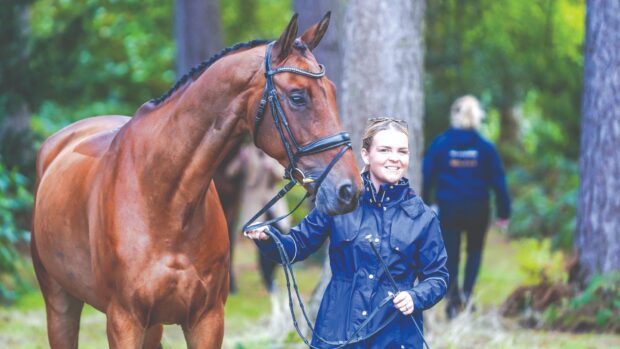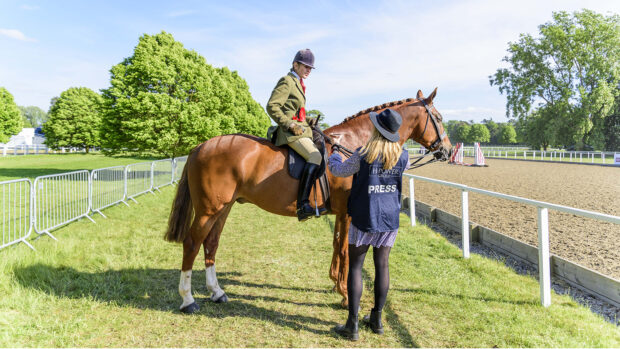Horse enthusiasts about to embark on a career are often faced with two preconceived options. One — choose a completely unrelated job, and hope to earn enough money to keep your own horse. Two — make horses your career, and have no time, money or energy left to enjoy them as a hobby.
But that’s not the whole story. Some people do manage to combine their passion with their career, and have climbed the ladder to reach an enviably well-paid job. These people dispel the myth that working with horses is all hard labour, long hours and no prospects.
Six-figure salaries are not unheard of in the world of bloodstock insurance. David Ashby, director of insurer Amlin Plus, suggests “£150,000, perhaps even more” as an achievable wage for those at the very top of this sector of the equine industry.
David originally chose a career in insurance when he realised he was “too tall to be a jockey, with not enough money to be a trainer”.
While working as a loss adjuster at a Lloyds syndicate, he asked his colleagues to pass all the bloodstock and livestock work his way. He was soon offered a position as a bloodstock underwriter. During David’s first week in his new role, Shergar was stolen — which was a thrilling, if somewhat challenging, initiation into the industry.
Amlin Plus is tailored to the top end of the market, catering for owners of competition horses and racehorses. David’s role involves valuing these horses and assessing the premiums, which means he spends time at major bloodstock sales, big race meetings and stud farms around the world. This allows him the hands-on contact with horses that many jobs in the industry don’t offer.
This, he claims, is one of the best aspects of being a bloodstock underwriter, along with “meeting so many people, and being able to carry on competing”.
David manages to combine his high-flying position with competing his two eventers, Guyoco and Lester De La Pree. He even owns a winning flat racehorse, Diamonds And Dust.
Entry level opportunities for graduates or those with prior insurance experience hoping to move into the bloodstock area arise “once a month or so”, estimates David.
To land one of the elusive places, he explains, it’s more important to understand the principles of insurance than to have an in-depth knowledge of horses. Despite this, he believes his experience of riding and competing has helped his rise to the top.
Although there are riding horse insurance companies nationwide, many of the specialist bloodstock insurance jobs are based in the City, which may not appeal to someone who wants to have horses nearby.
SUBSCRIBE TO HORSE & HOUND AND SAVE Enjoy all the latest equestrian news and competition reports delivered straight to your door every week. To subscribe for just £1.43 a copy click here >>
|



